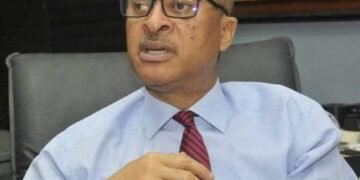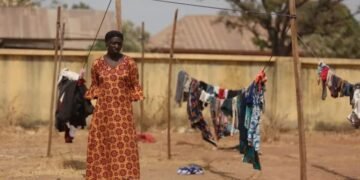By Jude Michael
Communities in Anambra State have been tasked by Gov Chukwuma Soludo to take ownership of roads built in their areas in order to cut costs for the government and allow government to build other infrastructure for them rather than using the money to rebuild the roads.
In a press statement signed by the Commissioner for Information, Sir Paul Nwosu, the government said that the era of crude oil money having gone and replaced by that of tax driven economy like in Anambra, everybody who paid taxes and legitimate levies had become stakeholders in the system, which, he said, meant that all tax payers had a sacred duty to protect and not to damage government assets as they all contributed to building and emplacing them.
‘Yes, you paid for that road; you paid for that public building; those public facilities and utilities were provided with your money. So you have a responsibility to protect them just like the property in your private homes. When government is compelled to rebuild, replace or repair these facilities before they are due, the public is denying themselves of other new infrastructure and amenities that government would have provided for them with their tax money,’ the statement read.
It said the state government had repeatedly sworn to account for the last Kobo paid to it by way of taxes and levies, noting that Gov Soludo had continued to make-good that pledge by the quality of the infrastructure coming up in addition to roads that would last a minimum of 20 years.
‘But all that is dependent on how well we take ownership and care for them as a people. The recent survey by the Ministry of Works on causes of roads failure clearly shows that it is largely in our hands to stop our newly constructed roads from failing. Ndi-Anambra must make the required commitment for these roads to last long.
‘There is the flagrant issue of silted drains and culverts. People must put a stop to indiscriminate refuse disposal that always end up blocking drains and culverts, thereby causing run-off water and ponding on the road pavement. This makes road failure inevitable.
‘Sundry economic activities on the pavements such as car wash services, water vending, trading of perishable items on the pavement, offloading of heavy machine parts and goods, and the burning of tyres and other materials on the roads and pavements, all cause water infiltration into the pavements, leading to the deformation of the roads and eventual failure,’ the release further stated.
It blamed what it called repetitive heavy traffic loads when the roads were not designed for such axial loads as the causes of tearing and wearing, and resultant road failure, including what it called the illegal activities of private developers.
‘Unauthorized and indiscriminate construction of bumps on the highways by communities and laying of water pipes to private properties interfere with roads’ integrity, thereby accelerating its deterioration and subsequent failure,’ the release stated, urging citizens to take good care of all the roads by reporting anybody who engaged in any of those activities that jeopardized roads in line with Soludo’s charge of seeing something going wrong and saying something.











































